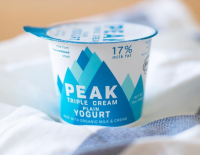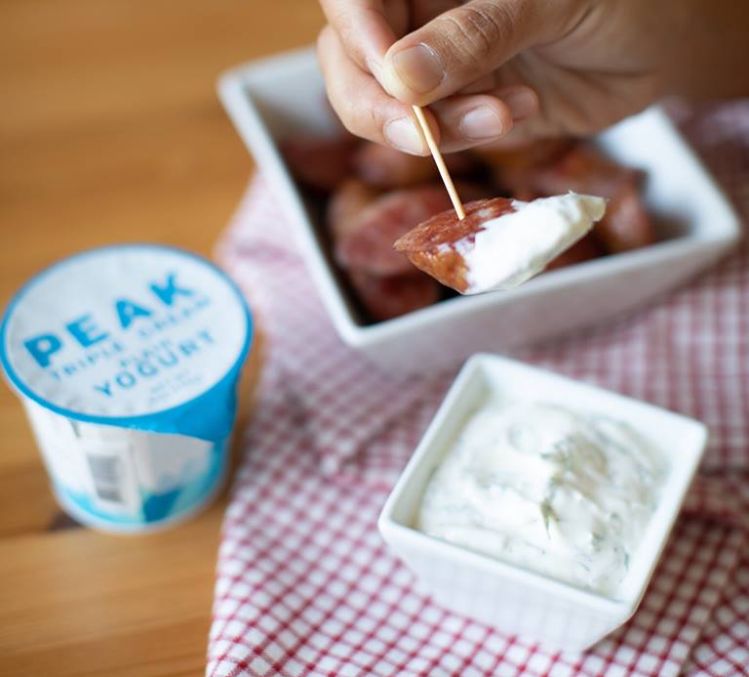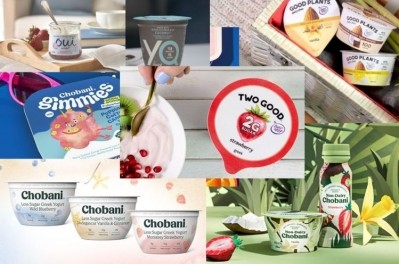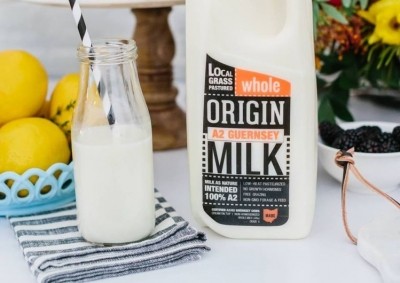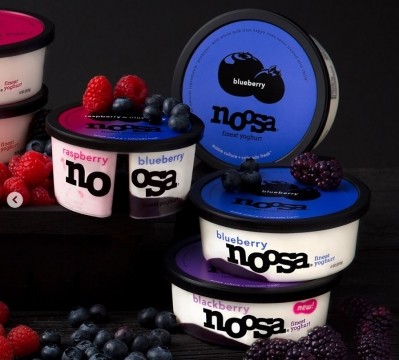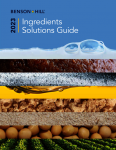Peak Yogurt taps into keto trend with 17% milk fat ‘triple cream’ yogurts: ‘Milk fat is one of nature’s original superfoods’
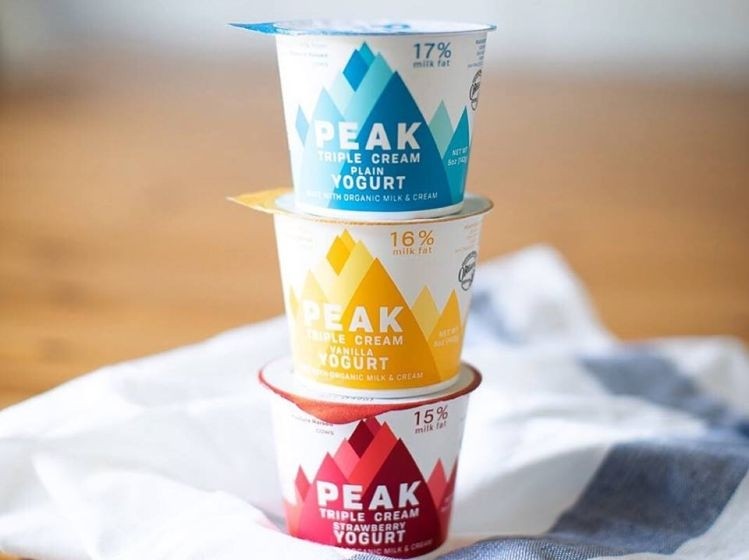
Peak Yogurt is the brainchild of former industrial fermentation engineer Evan Sims, who started making high fat yogurt with organic milk and cream from pasture-based cows in his kitchen in 2015 and started selling to independent stores in the Bay Area, Portland, and Seattle in October 2017 after teaming up with a co-packer in Portland, Oregon.
Spurred by the interest from the burgeoning keto community, he’s also launched a direct to consumer business enabling fans to buy in bulk.
“Milk fat is the best part of dairy. It’s got all this energy that doesn’t spike your blood sugar and all these great fat soluble nutrients, butyric acid, this short chain fatty acid that works in synergy with the probiotics in yogurt, and it’s really one of nature’s original superfoods. I read all the clinical studies about saturated fat and just came to this pretty firm conviction that the advice to avoid saturated fat because of heart disease really never had a strong basis.”
Peak triple cream yogurt comes in 5oz pots in three flavors:
- Plain (270 cals, 24g fat, 8g protein, 4g sugar)
- Vanilla (270 cals, 22g fat, 7g protein, 10g sugar)
- Strawberry (260 cals, 21g fat, 7g protein, 11g sugar)
The ingredients list for plain Peak Yogurt is: Pasteurized organic milk, pasteurized organic cream, milk protein concentrate, pectin, and live and active cultures.
I wanted to make something you could have as a meal replacement, as a filling breakfast
He added: “We’ve seen triple cream yogurts from Siggi’s [launched in early 2017] made with whole milk and cream, but when I started making yogurt in 2015, there was nothing like it on the market. There was noosa [making yogurt with whole milk] but that was quite indulgent and sweet like a dessert yogurt, whereas I wanted the fat but with low or no sugar, something that you could have as a meal replacement, as a filling breakfast.”
Triple cream by numbers
But what does ‘triple cream’ mean? For brie (cheese), triple cream means a minimum of 70% milk fat, but for yogurt there’s no hard and fast rule, with Siggi’s vanilla triple cream 9% milk fat yogurt for example containing 10g fat, 9g protein, 8g sugar and 170 calories per 114g, whereas the same amount of Peak Yogurt vanilla would contain 17.7g fat, 5.6g protein, 8g sugar and 217 calories.
“Peak Yogurt is basically around 3:1 fat to protein [whereas Chobani plain whole milk Greek yogurt for example is around 2:1 protein to fat]. We could have gone for 10% milk fat but somewhere in my mind I knew I wanted to go the full distance and really take this idea to its logical conclusion. If we were the same as Siggi’s we wouldn’t be able to really differentiate ourselves.
“I knew that the keto diet was a thing and I wanted something that would work for people on that diet [81% of the calories of plain Peak Yogurt come from fat, and 73-74% of the calories in the strawberry and vanilla varieties] because people on the keto diet can’t eat high protein low sugar yogurt.”
That said, this isn’t just for keto enthusiasts, who typically seek a fat:protein:carb ratio of 70:20:10, he stressed.
“We’re targeting the keto comumunity [as early adopters] as they seem like the most engaged community, but I don’t think everyone should be on the keto diet or that carbs are evil.
“The obsession with macronutrients is missing the point. We’ve gone down this path of highly processed super refined foods [designed to meet a certain macronutrient profile]. To me it’s more important to eat whole foods, nourishing foods, nutrient dense foods that support human health.
"Our ultimate target consumer is anyone that enjoys a high fat low sugar yogurt."
We’re the only keto yogurt out there
Getting the business off the ground hasn’t been easy, acknowledges Sims, who raised just over $250k to get the business off the ground and is now looking to raise $1m to take it to the next level.
“Our best accounts were doing 2.5 to 3 cases per week per sku, which was pretty good, but we had a hard time getting placement in bigger chains, because yogurt is such a competitive category with high turns, so if your turn rate is not high enough you’ll get knocked off the shelf.
“So we went to the KetoCon conference in Austin and the Low Carb USA conference in San Diego in the summer and we met hundreds of people that said they loved our product and that led us to launch the ecommerce platform on August 13, which no one had really done for yogurt.
"It’s expensive to ship, and organic cream is 15 times more expensive than conventional whole milk, but online, we’re not competing with yogurt. We’re competing with other products that fill a similar need. A cup of Peak Yogurt is 270 calories, and there are lots of keto meal replacements that cost 5, 6, 7 dollars. In stores we’re $2.49-$2.99 per cup and online we’re $3.50-$5 per cup.
“Our average order value is something like $60 and we’re the only keto yogurt out there and people are desperate and eager for products that fit their lifestyle.”
